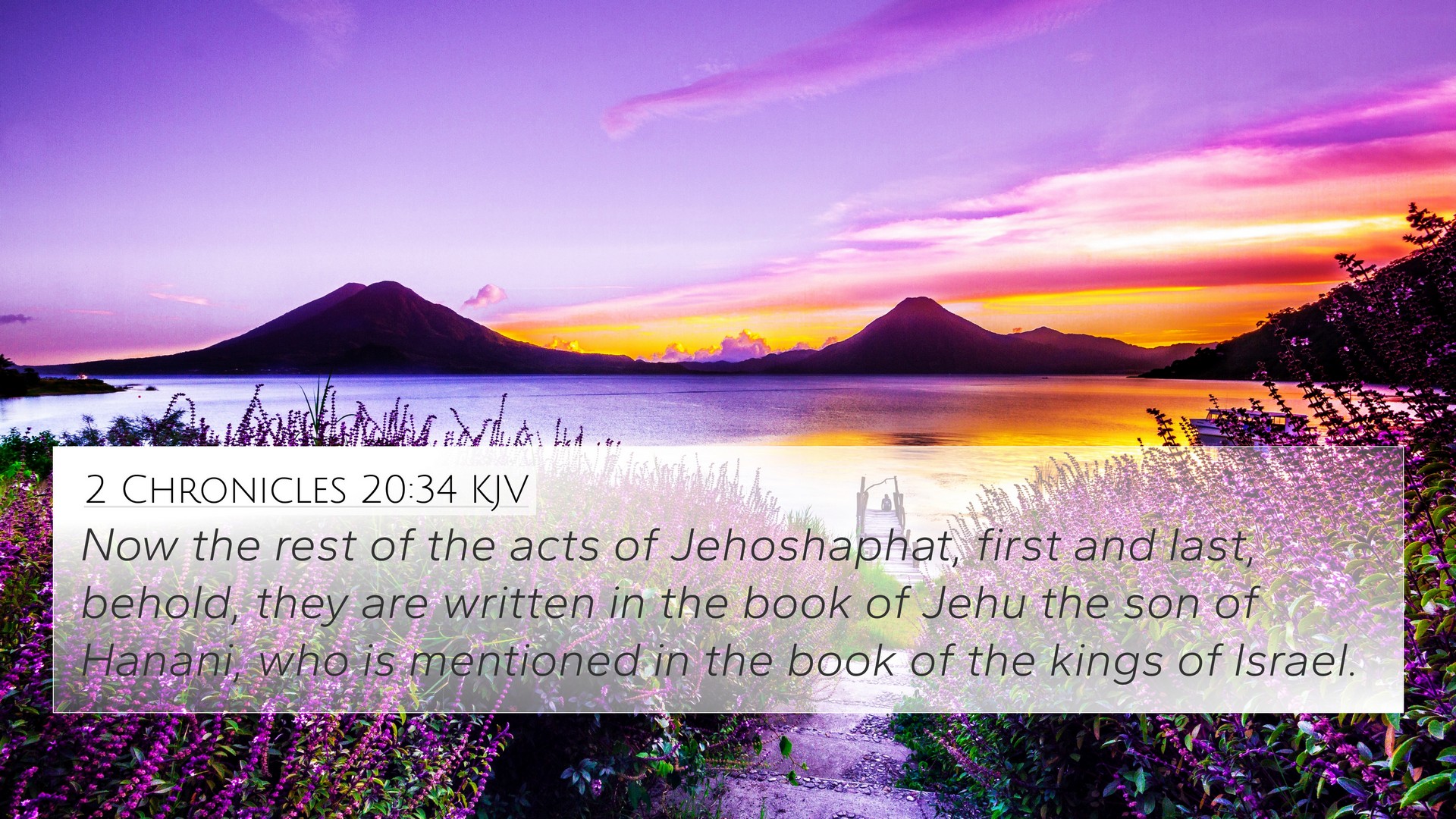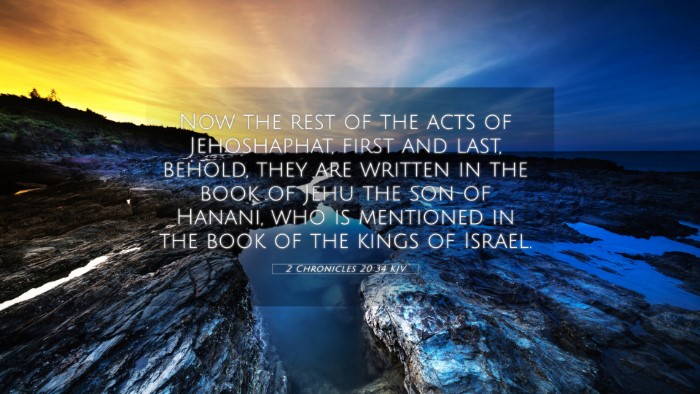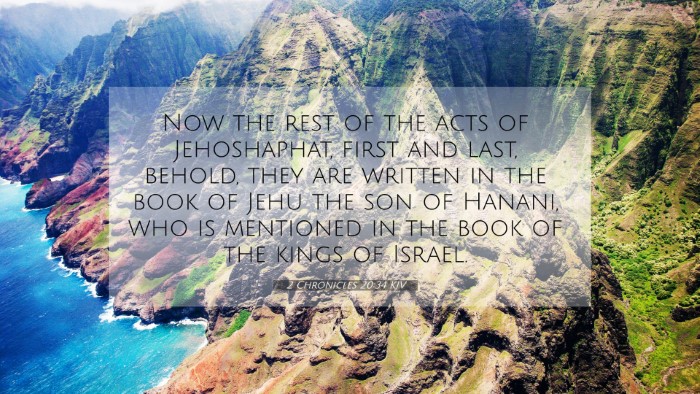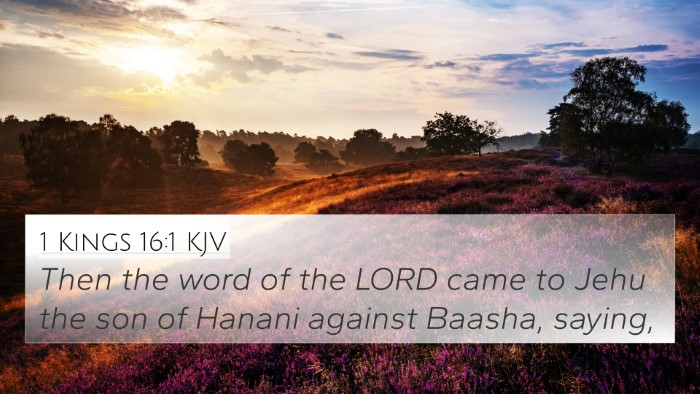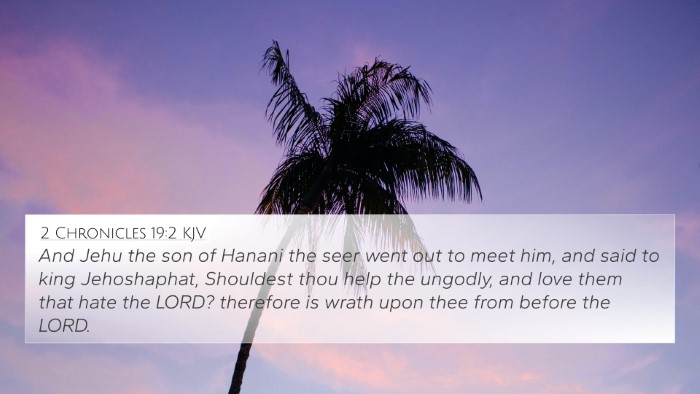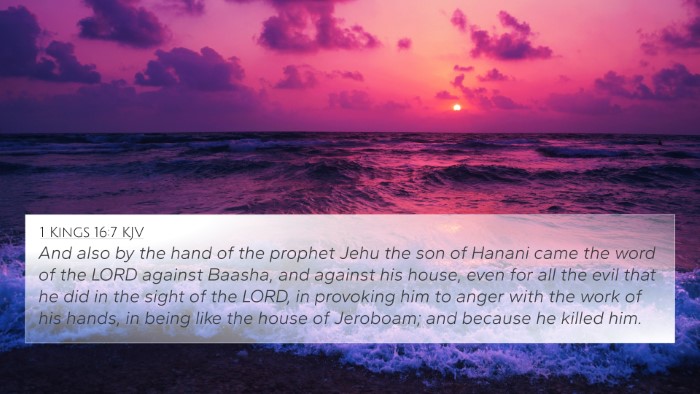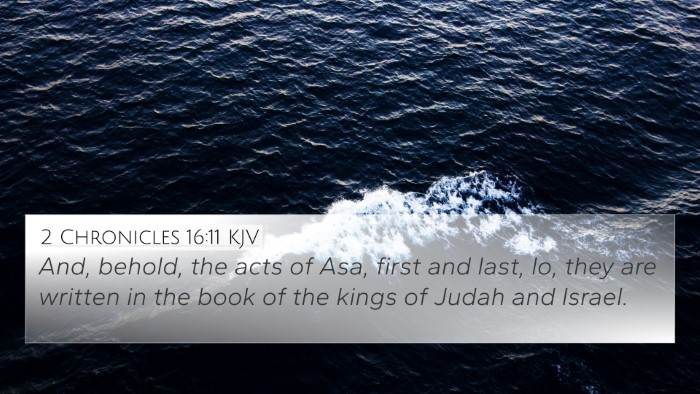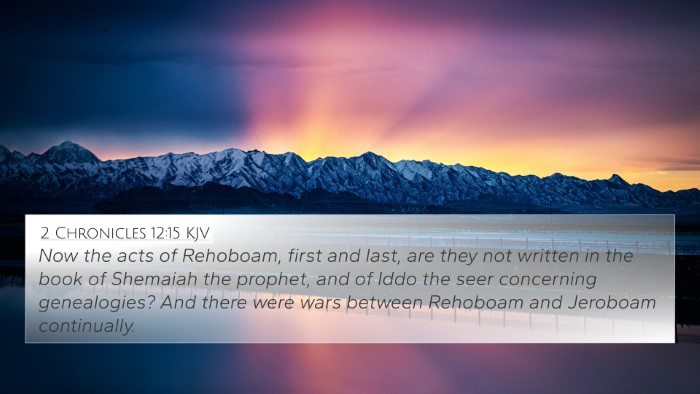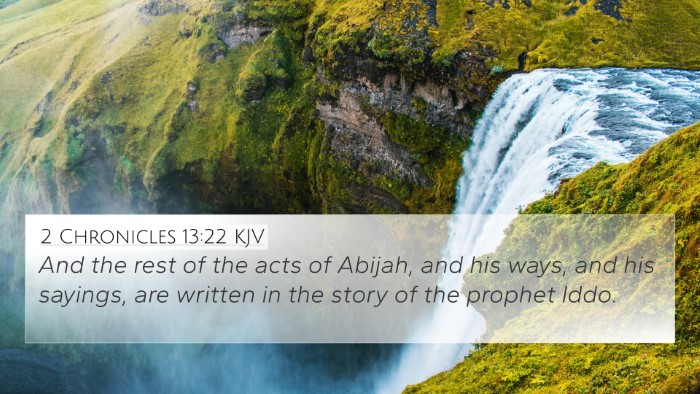Understanding 2 Chronicles 20:34
2 Chronicles 20:34 states: "Now the rest of the acts of Jehoshaphat, first and last, behold, they are written in the book of Jehu the son of Hanani, which is mentioned in the book of the kings of Israel."
This verse serves as a summary of the reign of King Jehoshaphat of Judah. It directs readers to other historical writings for more information about his deeds, indicating that the biblical text is not exhaustive but rather provides a highlight of significant events.
Commentary Insights
-
Matthew Henry:
Henry emphasizes that the reference to Jehu's account points to the idea that further insights into Jehoshaphat's reign are available outside the biblical text. This suggests the richness of the historical records and the importance of all events in understanding Israel's history.
-
Albert Barnes:
Barnes notes that Jehoshaphat's reign is significant due to his efforts in aligning Judah with Israel, highlighting his military and spiritual policies. The mention of Jehu's work emphasizes that Jehoshaphat's reign was part of a broader historical arc that extends to both kingdoms.
-
Adam Clarke:
Clarke adds that this verse illustrates God's sovereignty in recording history. The mention of Jehu's book indicates the divine providence in preserving the narrative of his people's leaders and their impacts on God’s plan.
Thematic Connections
This verse connects to several themes within the Bible, primarily focusing on God's guidance through leaders, the consequences of their actions, and the historical narrative of Israel and Judah. Below are some important Bible verses to consider:
- 1 Kings 22:43 - Reflects the deeds of Jehoshaphat in relation to the kingship of Israel.
- 2 Chronicles 17:3-4 - Highlights Jehoshaphat's faithfulness to God, setting the stage for understanding his reign.
- 2 Chronicles 19:4 - Discusses Jehoshaphat's reforms and efforts to bring justice to Judah.
- 2 Chronicles 20:1 - Introduces the context of Jehoshaphat's reliance on God during crises, illustrating his leadership style.
- 2 Chronicles 21:1 - Starts the narrative about the aftermath of Jehoshaphat's reign, signaling the ongoing story recorded beyond his life.
- 1 Chronicles 3:10 - A genealogical reference that reinforces the importance of royal lineage and covenant.
- 2 Kings 8:16 - Provides insight into the political relationships between Judah and Israel during Jehoshaphat's time.
Cross-Referencing Biblical Texts
Understanding 2 Chronicles 20:34 through the lens of cross-referencing can greatly enhance one’s grasp of biblical history. Tools such as Bible concordances and Bible cross-reference guides are invaluable for those looking to dig deeper into the text. Here are some suggestions:
- Tools for Bible Cross-Referencing: Utilize online databases or printed cross-reference volumes to find connections.
- Bible Cross-Reference Guide: A systematic approach to locate verses that support or explain other Bible passages.
- Cross-Reference Bible Study: Group verses by themes or events for a comprehensive understanding.
Inter-Biblical Dialogue
This call for an awareness of surrounding historical documentation emphasizes the importance of inter-Biblical dialogue. It encourages the reader to explore links between the Old and New Testaments, such as:
- Matthew 22:41-46 - Here, Jesus references David, establishing continuity in the Davidic line’s significance.
- Hebrews 1:1-2 - Introduces the theme of divine revelation, linking the historical accounts directly to God's unfolding plan.
Conclusion
In summary, 2 Chronicles 20:34 underscores the importance of understanding biblical history within the context of other accounts. The connections between Bible verses enhance scholarly study and personal understanding, inviting readers to explore deeper through the use of various biblical study tools. This verse serves as a reminder of the richness of the biblical narrative beyond what is immediately visible in the text itself, showcasing God’s overarching plan through Israel’s kings.
Further Study Recommendations
To enrich your study, consider engaging with:
- Detailed cross-reference studies between Gospels and historical books.
- Comparative studies within the Pauline epistles and their relation to the prophetic writings.
- Thematic connections across the Psalms and their fulfillment in New Testament teachings.
